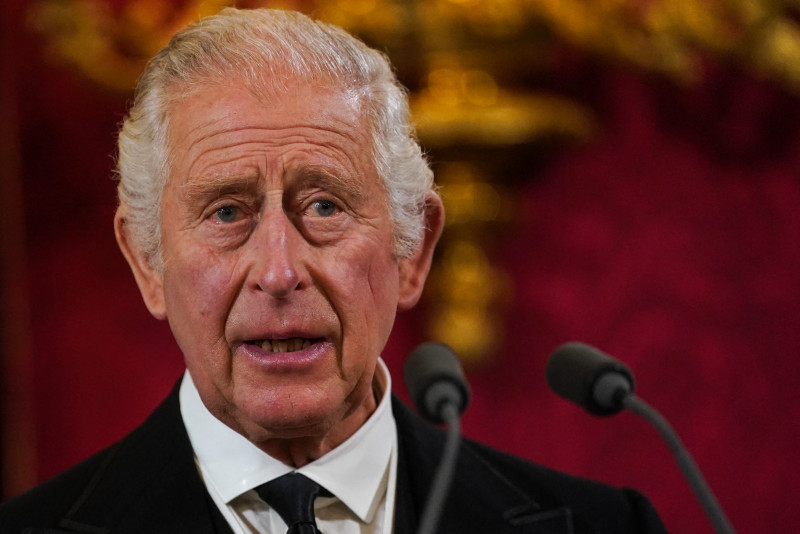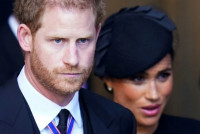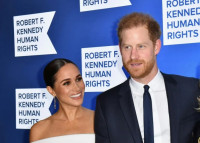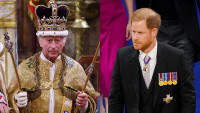WITH the death of Queen Elizabeth II, the glue that bound 56 disparate nations is gone. The future of the British Commonwealth is less certain under King Charles III.
The Commonwealth faces two main questions: the constitutional future of the Commonwealth realms, and the future of the Commonwealth itself.
Elizabeth II personified the monarchy’s link to the past. For good or ill, she was part of the Commonwealth story.
The Commonwealth grew from eight to 56 nations under Elizabeth. During her reign, republican sentiment was viewed as a move against the queen. It’s now portrayed as a move towards full nationhood.
The Commonwealth was designed as a community of equals. It was never intended to be a second version of the British Empire – countries such as Rwanda, Mozambique, and Gabon joined despite lacking any connection to the United Kingdom’s colonial past.
In addition to the UK, the Commonwealth realms are the 14 countries where the UK monarch is head of state. The king is represented by a governor-general, who exercises on his behalf the powers held by the Crown – making it, in this sense, the only international monarchy. As they are independent countries, the future of the monarchy is a question for each Commonwealth realm.
While it is one thing for the UK to retain the monarchy, it is another question for the realms. It may not make sense for the head of state of Australia to be a monarch who lives thousands of kilometres away.
In the Commonwealth realms, the monarchy has been viewed as a link to the “mother country” as each realm gradually became an independent state. But it could also be seen as preventing fully independent states from achieving complete nationhood.
Being the head of state of 15 countries increases the demand on the royal family for engagements. Each realm is entitled to expect the monarch, as head of state – and by extension, members of the royal family – to conduct domestic engagements. This has been one justification for the British royal family to be larger than its European counterparts.
However, the king has let it be known that he wishes to “slim down” the monarchy with fewer royals conducting engagements, which will make it increasingly difficult to meet demands and expectations. If the monarch is absent from a realm, then the question of becoming a republic may answer itself.
Challenges in transforming to a republic
In some realms, even if there is a majority in favour of becoming a republic, delivering change can be problematic.
Should they seek to replicate the position of governor-general with an indirectly elected president chosen by the legislature or pursue a directly elected model? Both approaches have their challenges.
Allowing the legislature to appoint the president via an indirectly elected model would be the least constitutionally disruptive, but may not prove popular among the public – as Australia found in 1999. And politicians are naturally wary of being directly elected by the public as it could challenge their authority.
The presidency of the Republic of Ireland may provide the best of both worlds: directly elected but without challenging the authority of government or Parliament to govern. A president can serve for seven years, renewable once. To seek election, they must be nominated by at least 20 members of the Oireachtas, which is the country’s Parliament, or four of the 31 county or city councils. A president who has served one term can nominate themselves to seek reelection for a second term, but their powers are strictly regulated by the constitution. By convention, the president steers clear of matters of party political controversy.
Any move to a republic must comply with the pre-outlined procedures for a constitutional change. For example, in Jamaica, a two-thirds majority of both Houses and a referendum is required to become a republic – a significantly higher hurdle than in other countries.
In Guyana, the constitution only requires a simple majority from the members of the National Assembly, and it became a republic in 1970.
Barbados moved to a republic more recently in 2021, meeting the threshold for a two-thirds majority. This was an easy threshold to meet, as the Barbados Labour Party, which campaigned on the promise of becoming a republic, won a landslide victory at the 2018 referendum. Barbados showed the key political dynamic of republicanism – if there is the will to become a republic, it cannot be suppressed forever.
Becoming a republic does not mean a total rupture from the past. Since 2007, a Commonwealth realm that became a republic no longer needed to reapply for membership in the Commonwealth. Barbados has become a republic, but remains a member of the Commonwealth, as have Malta which became a republic in 1974 and Mauritius which became one in 1992.
Advantages of Commonwealth fraternity
The question is, what does being a member of the Commonwealth mean? This is a difficult question to answer.
In 2012, the UK’s House of Commons Foreign Affairs Committee concluded: “The Commonwealth is failing to realise its great potential. In recent years it has been too often both silent and invisible: silent on occasions when members flout its principles and invisible to its people.”
Over 10 years later, little has changed. But the links between Commonwealth members are much deeper than merely sharing a monarch. It has a particular role in fostering democracy and the rule of law amongst its members.
For example, through electoral observation missions and providing a forum to share best practices on issues such as anti-corruption.
On cybercrime, the Commonwealth assisted Botswana and Trinidad and Tobago with the reform of their legislation. This is an example of how the Commonwealth can assist small states. These are defined as those with a population of less than 1.5 million, which make up 33 of the Commonwealth’s 56 members. These small states sit alongside members of the G8, Australia, Canada, and the UK, and much larger countries including India, Pakistan, and Malaysia.
The Commonwealth more generally can provide a form for small states to get their particular concerns heard, not only in the Commonwealth, but more broadly amongst other international organisations.
Members of the Commonwealth enjoy close relations with each other. All the members from Africa are also part of the African Union. Australia, New Zealand, and Canada continue to maintain deep links with the UK. Together with the United States, they are all members of the Five Eyes intelligence-sharing arrangement. Australia, together with the UK and the US, have created Aukus, a security pact which aims to facilitate Australia’s nuclear capability.
The nature of its membership means the Commonwealth may be uniquely placed to play a role in combating climate change. Countries such as Bangladesh, the Seychelles, and Mauritius may bear the brunt of climate change, while countries including India, Canada, and Australia are some of the world’s highest emitters of carbon dioxide. But to do so, the Commonwealth would need to secure a unity of objectives and a set of institutions which it has never done before.
While the future of the Commonwealth and its realms may be changing, it still provides a grounding root for many nations. Becoming a republic does not mean severing all links with Britain. That has never been the case and will not be. – 360info, May 4, 2023
Craig Prescott of Bangor University, Wales writes widely on constitutional and political issues in the UK. He is currently writing Modern Monarchy to be published in early 2024 by Agenda Publishing
Published under Creative Commons and in partnership with 360info.org








.jpg)












